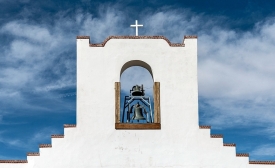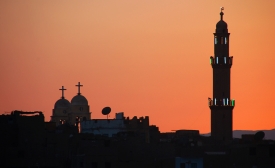religion

Madison Jones on how Church mission trips foster cross-cultural communication.
Less than a year after the landmark nuclear deal came into effect, Iran was on the verge of another unlikely diplomatic breakthrough. And one of the country's most powerful arsenals remains locked away deep in the bowels of a dimly lit state-owned building in Tehran, hidden from the world's eyes. Some might call that a tragedy. Because by any measure, the collection held at the Tehran Museum of Contemporary Art is exceptional, the greatest outside the West.
Saudi Arabia aims to promote itself as an attractive touristic destination owing to its diverse landscape and archaeological treasure, currently little known owing to decade-old lack of state interest. In years to come, Riyadh plans to gradually introduce tourist visa to people of all nationalities, with the condition that the visitors will respect the local culture and traditions. Currently, eight million religious tourists visit the country to perform umrah and hajj.
India’s soft-power reach out is undergoing a makeover to meet the challenges of the resource-crunch in spreading its art, culture, culinary traditions, as well as entertainment and spiritualism overseas. Compared to countries like China or the UK, what India has been spending on leveraging its soft-power to win friends overseas remains negligible. Soft-power plays an important part in winning friends and goodwill abroad.
Nepal and Japan are geographically distant but close in terms of culture, religion, way of life and sentiments. [...] Though diplomatic relations were established between Nepal and Japan only in 1956, a spiritual bond has existed since the introduction of Buddhism in Japan in the sixth century. This year, we are celebrating the diamond jubilee of the establishment of diplomatic relations between Nepal and Japan.
The year is slowly fading into darkness as per the Gregorian calendar (the most widely used civil calendar in the world today) and a new year is about to dawn. The last few days of the year are generally a time of celebrations and merriment across many parts of the world and these festivities have thrived for millennia.
Kuwait said yesterday it is imperative to confront terrorism by promoting Islamic cultural heritage in order to debunk stereotypes about the religion of Islam. [...] He expressed belief that response to extremism and terrorism should proceed from promoting Islamic cultural heritage as well as establishing the concepts of amity, tolerance and fraternity.

A new podcast by the U.S. State Department explains the role of religion in foreign policy.







